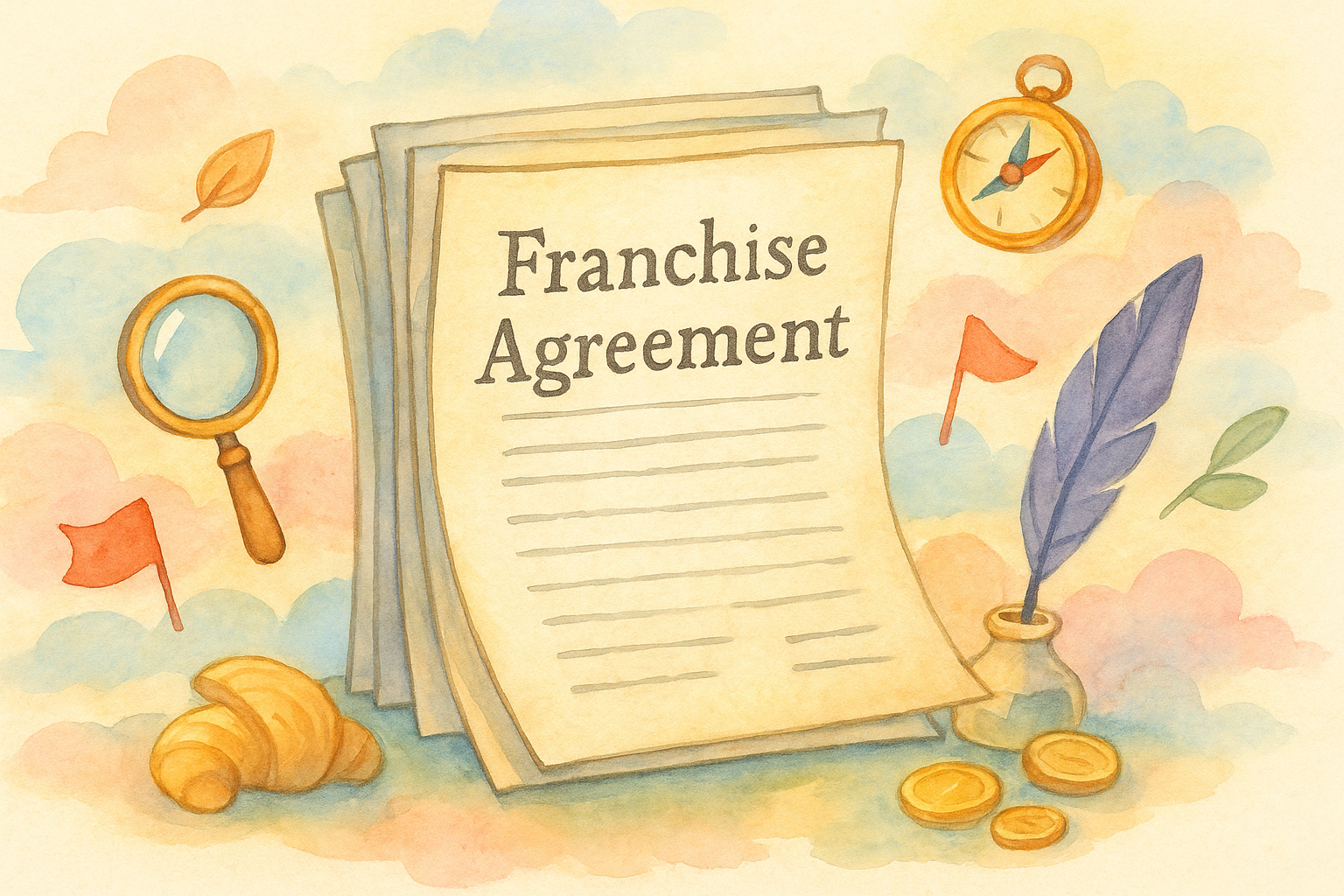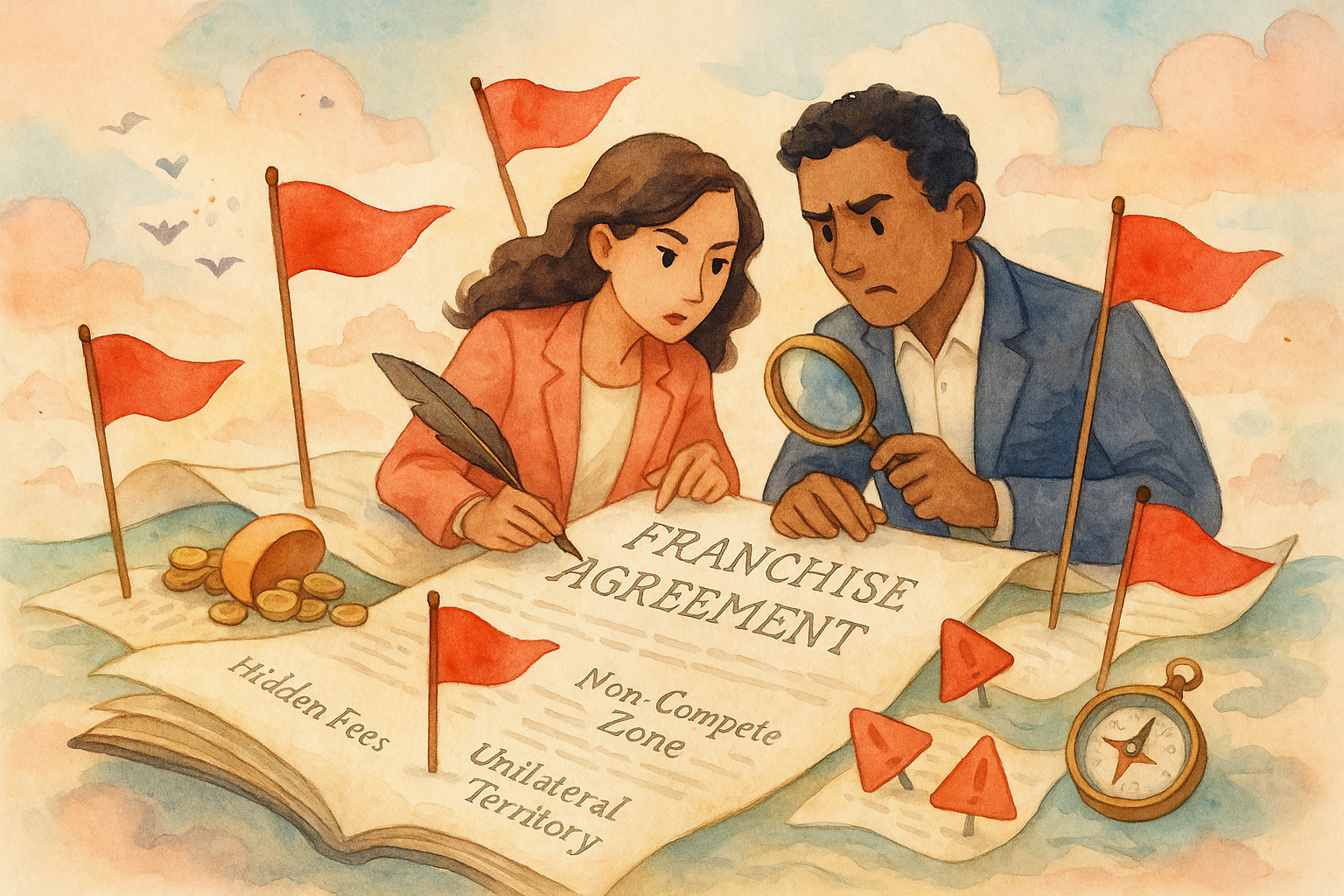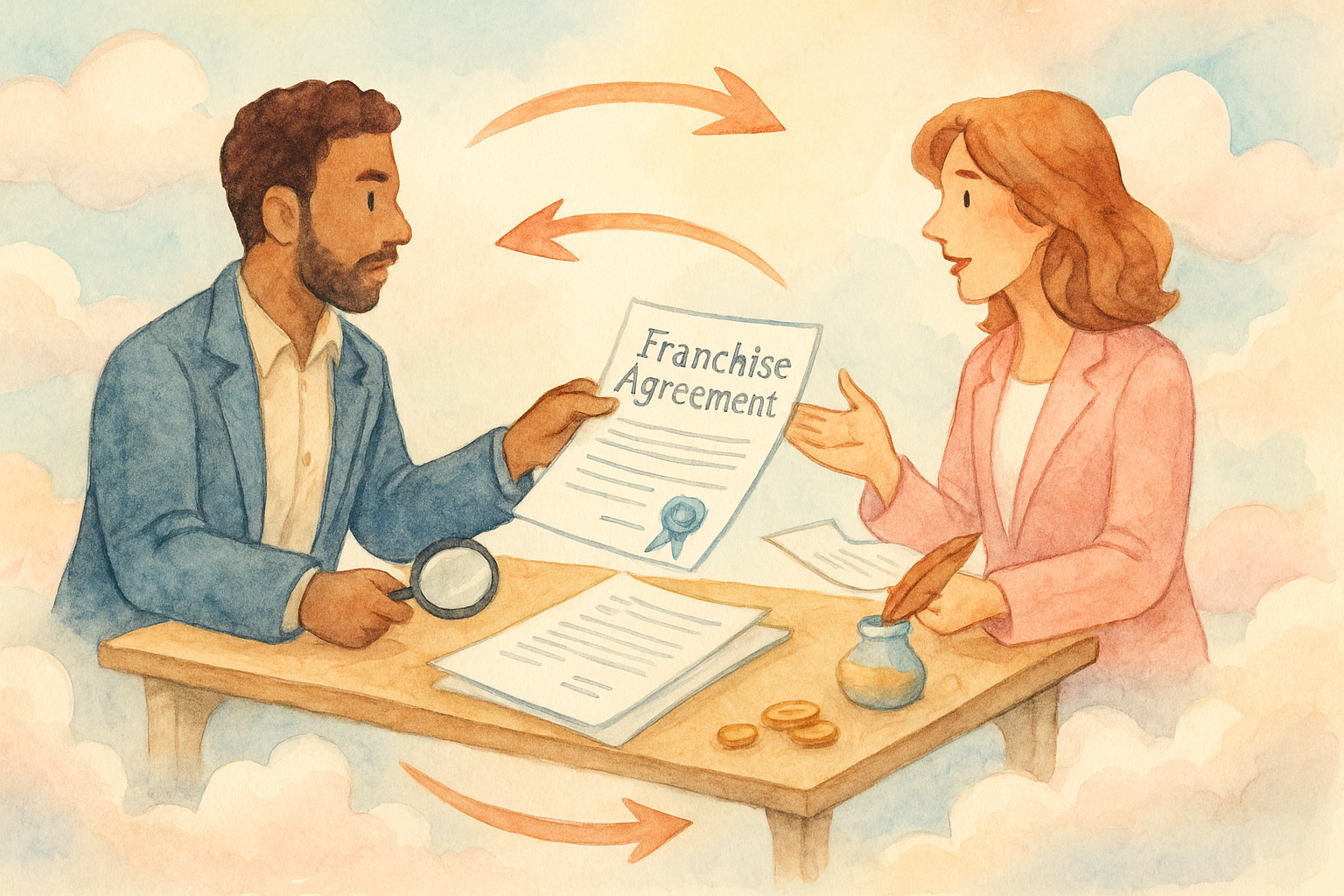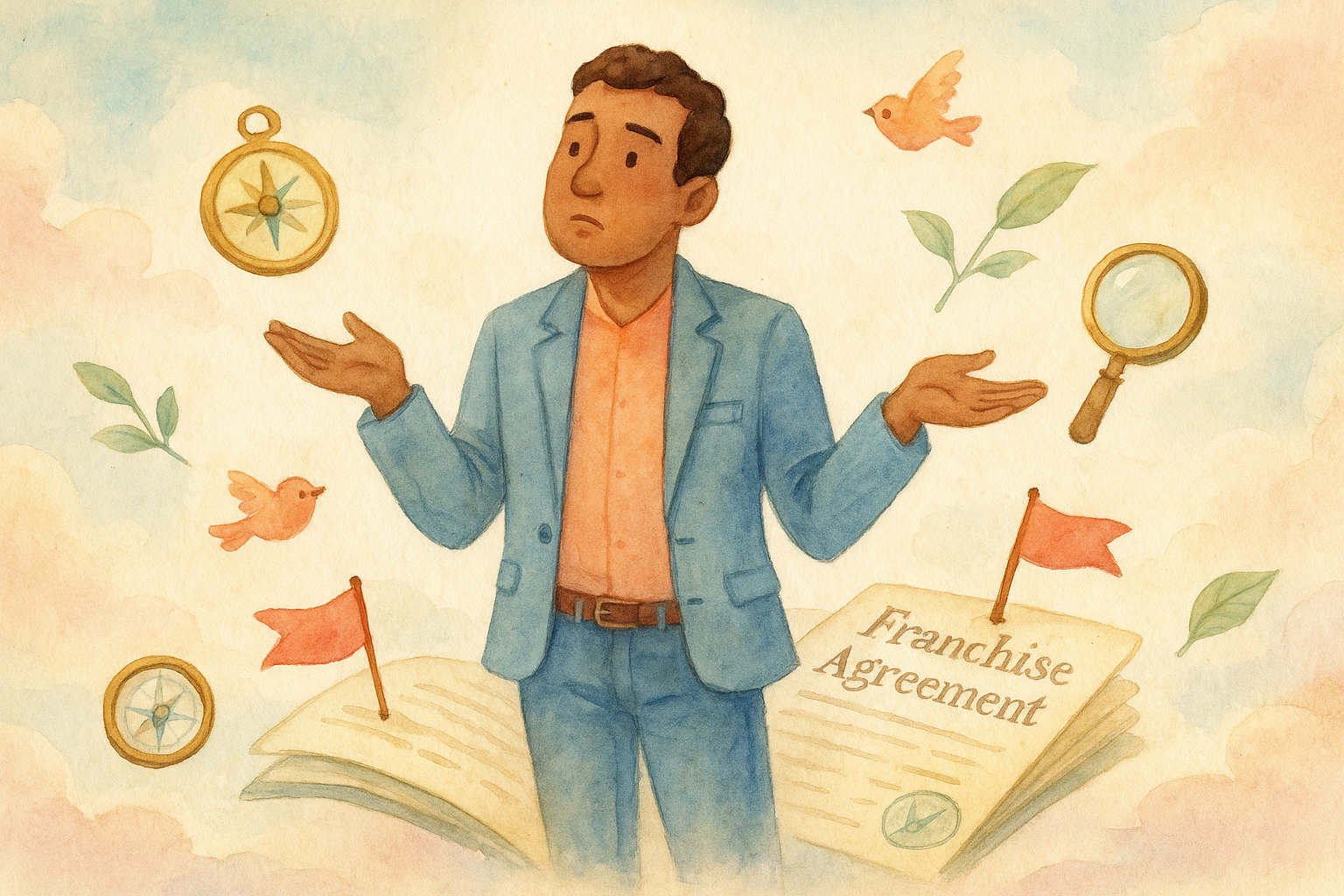Entering the world of franchising can be an exciting step for aspiring entrepreneurs. However, for a first-time franchisee, signing a franchise agreement without fully understanding its terms can lead to unexpected liabilities and long-term regrets. This article offers essential legal tips and a practical breakdown of what every new franchisee should consider before putting pen to paper.
Whether looking to open a fast-casual restaurant or a home-service brand, every franchise opportunity should start with a franchise agreement review, preferably with a qualified franchise attorney.

Understanding the Franchise Agreement
A franchise agreement is a legally binding contract between the franchisor and the franchisee. It outlines the terms under which the franchisee may operate under the franchisor’s brand, use its business model, and receive support. While it may seem standardized, no two agreements are exactly alike, and some terms may be negotiable—especially for first-time franchisees who do their due diligence.
A franchise agreement review should include careful analysis of:
- Territory rights
- Royalty and advertising fees
- Initial franchise fees
- Training and operational support
- Intellectual property usage
- Termination and renewal clauses
These terms significantly affect a franchisee’s long-term profitability and legal obligations.
First-Time Franchisee Tips: What to Do Before Signing
1. Don’t Skip the Franchise Disclosure Document (FDD)
Every franchisor is required by law to provide a Franchise Disclosure Document (FDD) at least 14 days before a franchise agreement can be signed. The FDD contains 23 detailed items, including litigation history, audited financials, fees, and current franchisee contact lists.
First-time franchisees should read the FDD carefully, and ideally have a franchise attorney explain the risks and red flags. Look closely at the sections covering Financial Performance Representations and Outlets and Franchisee Information for insight into franchise success and support.
2. Interview Current and Former Franchisees
Many first-time franchisees overlook this critical step. Speaking with both successful and former franchisees provides real-world insight into daily operations, the level of franchisor support, and challenges that may not be disclosed in official documents. The International Franchise Association maintains directories you can use to find and reach out to fellow franchise owners.
Ask questions like:
- How was your initial training and onboarding?
- Did you feel supported in marketing and operations?
- Would you sign the agreement again if given the chance?
3. Hire a Franchise Attorney for a Contract Review
This step is non-negotiable. A business or franchise attorney can help identify overly restrictive clauses, vague language, or fee structures that could lead to financial strain. Legal counsel is especially important when it comes to understanding personal guarantees, non-compete clauses, and early termination penalties.
Searching online for “franchise agreement review near me” or “business lawyer for franchise contracts” can help first-time franchisees find qualified legal counsel with experience in the franchising industry.

Common Red Flags in Franchise Agreements
Restrictive Territories with No Real Protection
Franchisees often assume they have exclusive territory rights, but many agreements only offer limited protection. Look for clauses allowing the franchisor to open additional locations or sell through e-commerce within your area.
Excessive Fees and Ambiguous Cost Obligations
In addition to the initial franchise fee, many contracts include ongoing royalty payments, technology fees, mandatory marketing contributions, and renovation obligations. A clear fee schedule should be provided—avoid agreements that leave these costs open-ended.
Unilateral Termination Clauses
Some agreements allow the franchisor to terminate the contract for a broad range of reasons with little notice. Ensure termination clauses are balanced and provide fair opportunity for correction or cure.
No Exit Strategy or Resale Limitations
A solid agreement should clearly outline your ability to sell or transfer the franchise in the future.
Watch out for transfer fees, mandatory buybacks, or vague “approval” conditions from the franchisor that could limit your exit options.

Are Franchise Agreements Negotiable?
Yes—and no. While many franchisors promote their contracts as non-negotiable, there may be room for flexibility depending on the brand, market, and your leverage as a buyer. For instance, terms related to territory exclusivity, ramp-up timelines, or fee schedules may be adjusted for first-time franchisees who ask.
A skilled franchise attorney can help assess whether negotiation is realistic and provide alternate language to propose.
Legal Protections for First-Time Franchisees
Cooling-Off Periods
Federal law mandates that franchisors provide the FDD 14 days before signing, giving first-time buyers time to review and consult with professionals. Some states may also provide additional protections or waiting periods.
State-Specific Franchise Laws
Certain states like California, New York, and Illinois have franchise registration or relationship laws that impose additional legal protections. These can include rules on termination, dispute resolution, and fee disclosures. A franchise lawyer can advise whether state laws work in your favor or impose extra obligations.
Mediation and Arbitration Clauses
Many agreements require franchisees to resolve disputes through arbitration or mediation, often in the franchisor’s home state. This can be expensive and inconvenient. Be sure you understand how and where disputes will be handled before signing.

Final Thoughts: Is This Franchise Right for You?
Being a first-time franchisee requires more than enthusiasm—it requires careful financial planning, legal due diligence, and honest self-assessment. Ask yourself:
- Do I understand the full investment and financial obligations?
- Do I believe in the franchisor’s brand and system?
- Am I prepared to follow rules rather than innovate on my own?
- Have I had the contract reviewed by a franchise attorney?
Franchising can be a smart path to business ownership, but only when the franchise agreement reflects a fair, transparent, and profitable partnership. With the right guidance and preparation, first-time franchisees can avoid legal traps and step confidently into entrepreneurship.
Need a Franchise Agreement Review?
At Lawyer For Business, we're committed to supporting your franchise journey. Whether you're exploring a new opportunity or revisiting an existing agreement, our skilled Florida franchise attorney offers the strategic legal guidance you need. Book a consultation today to move forward with clarity and confidence.
Back to Blog


